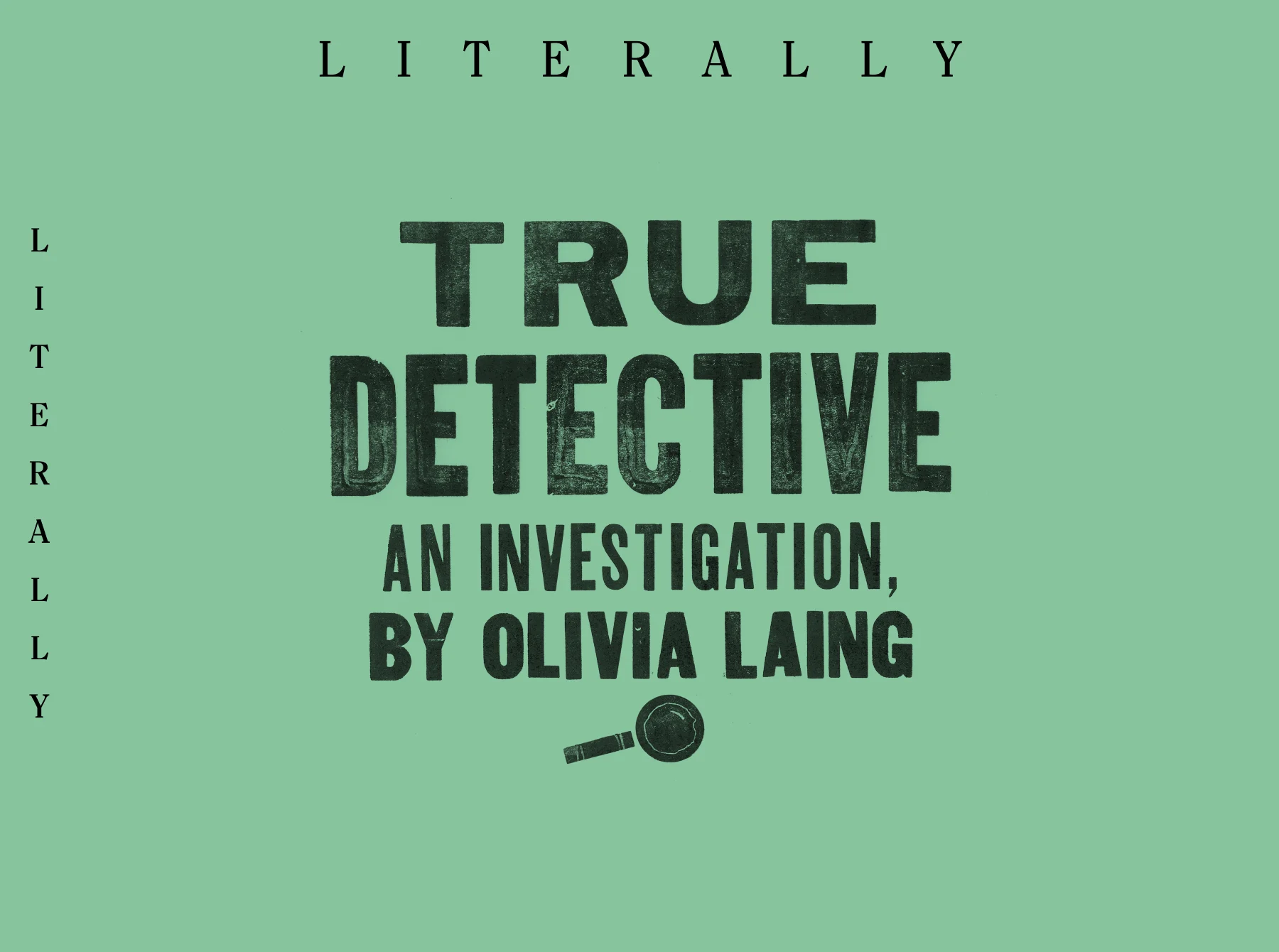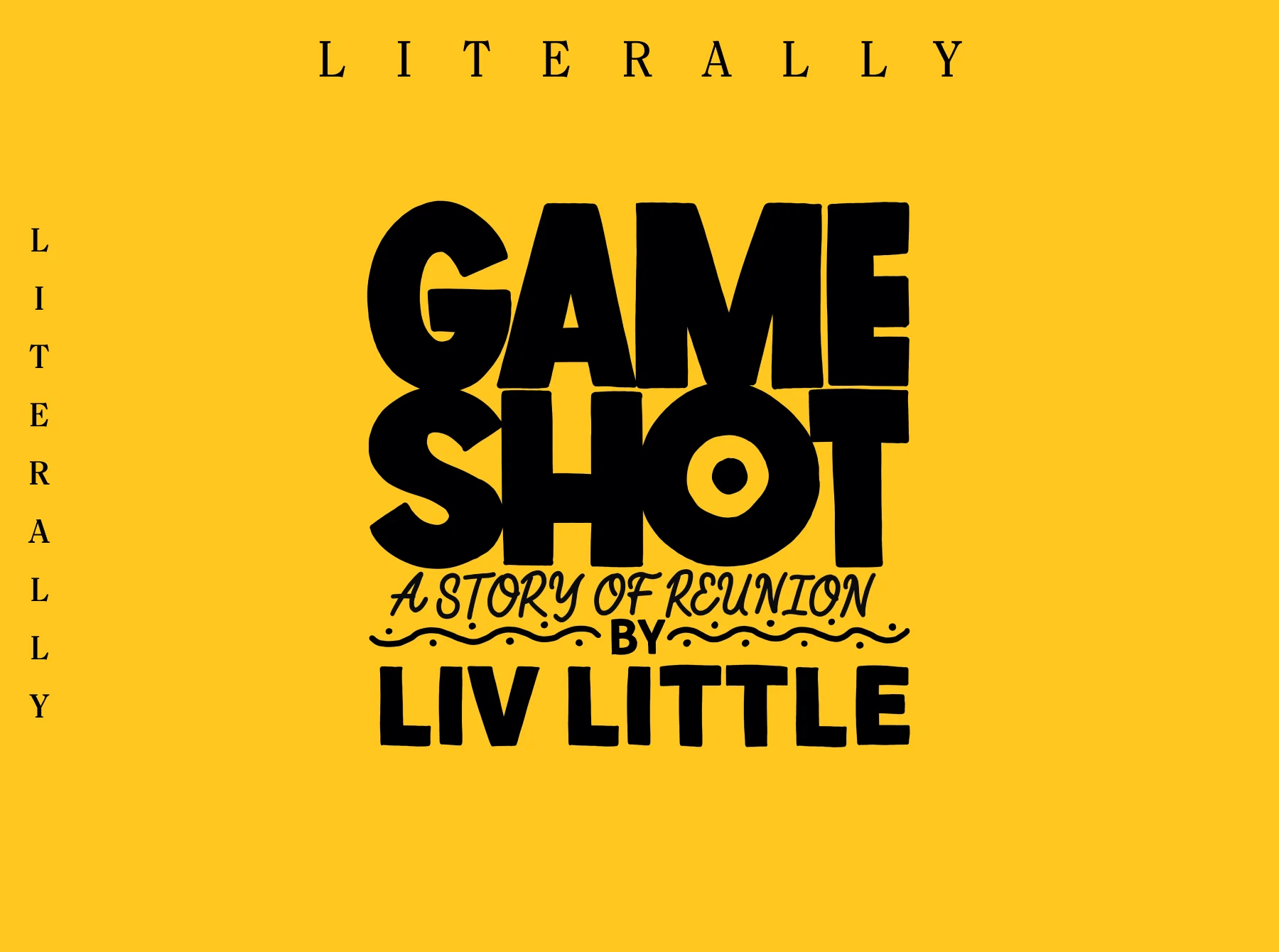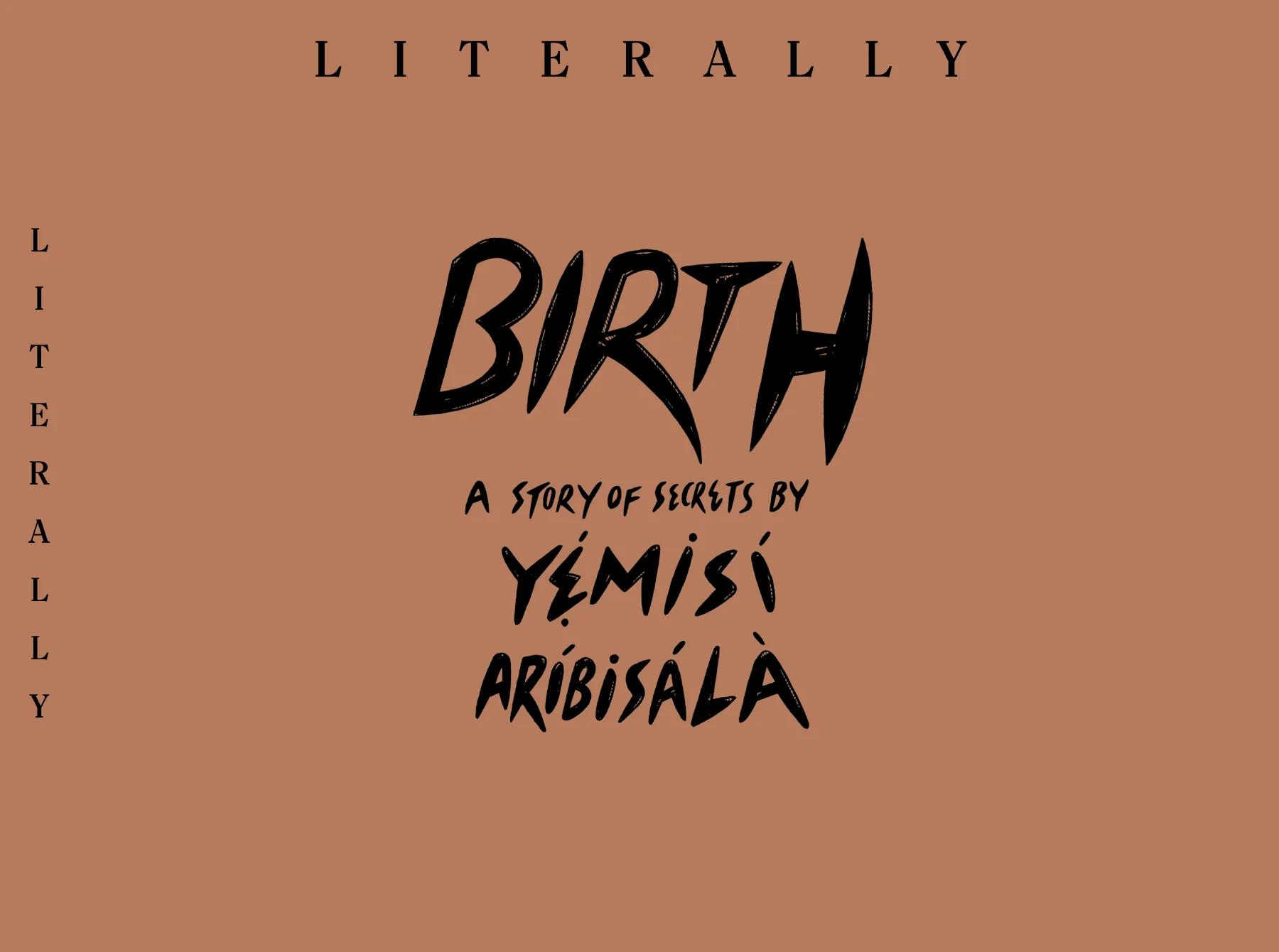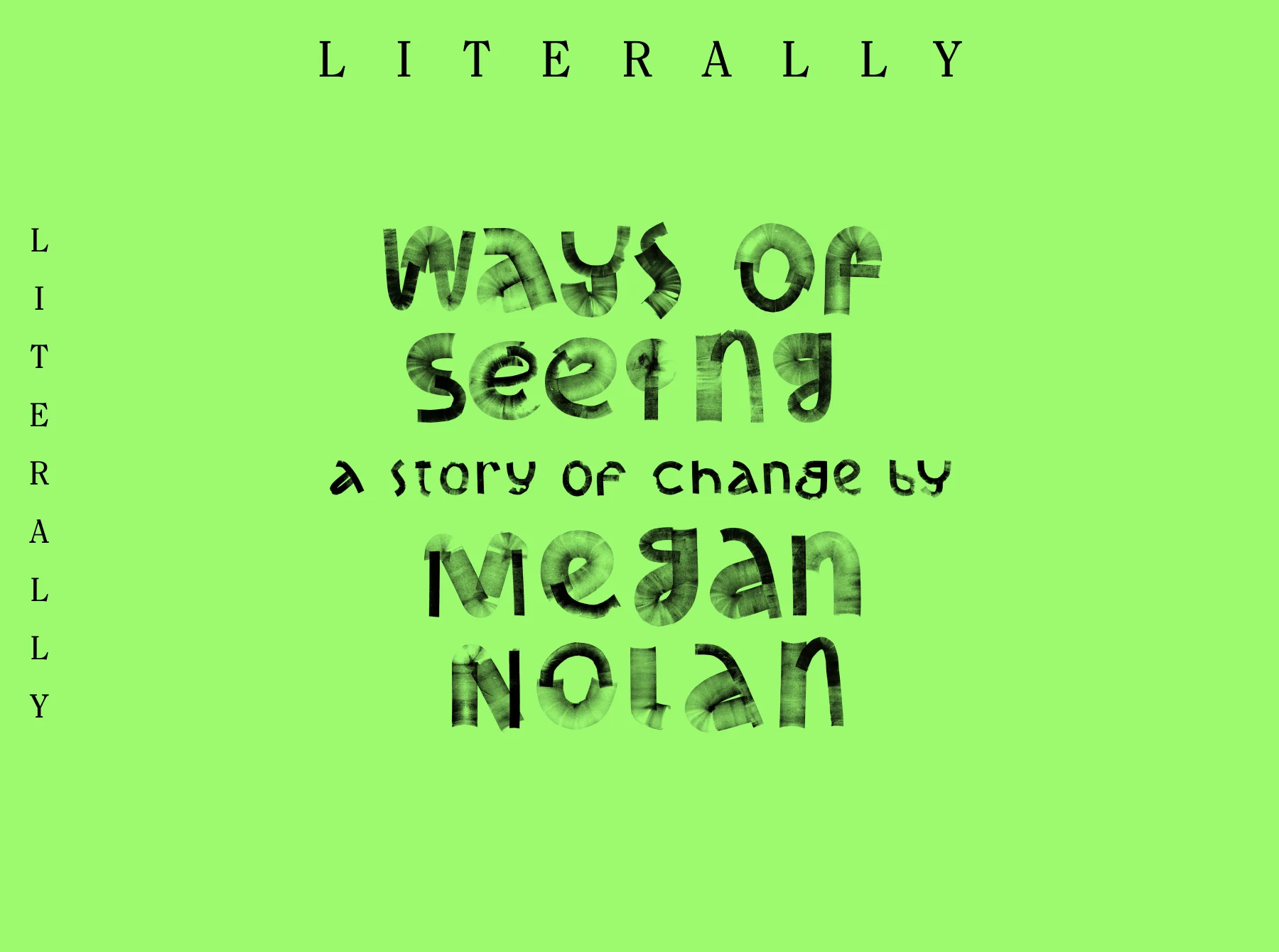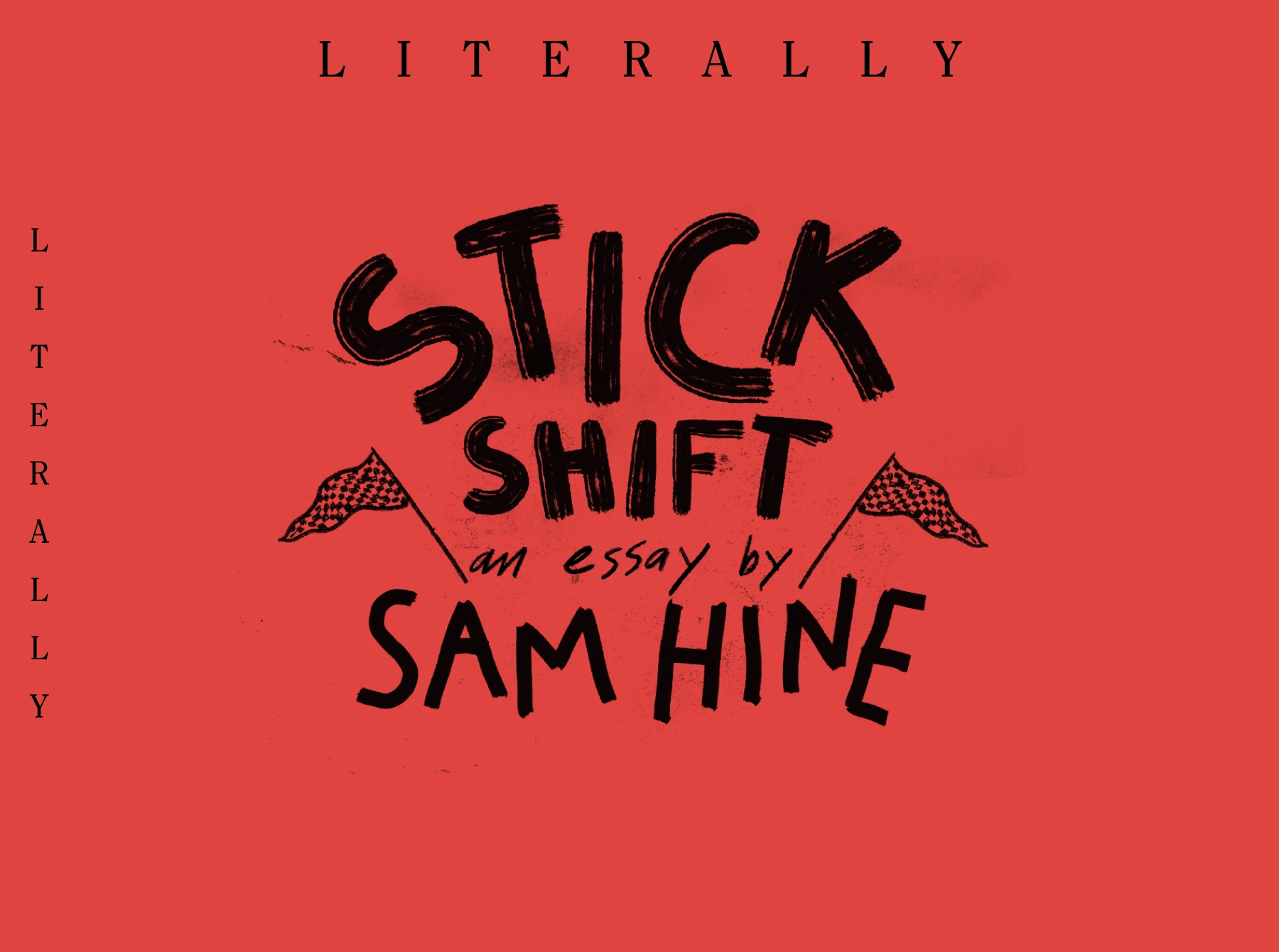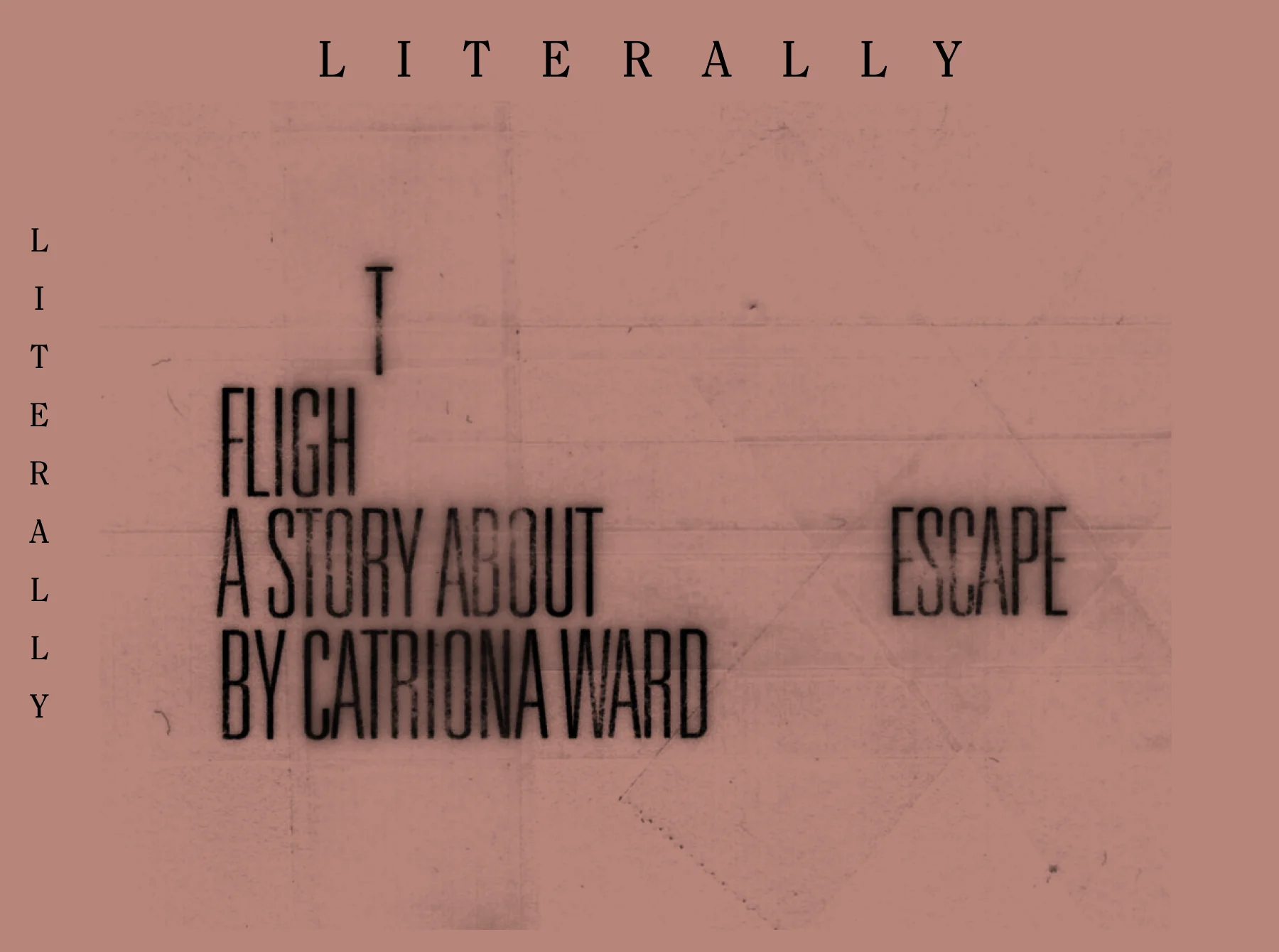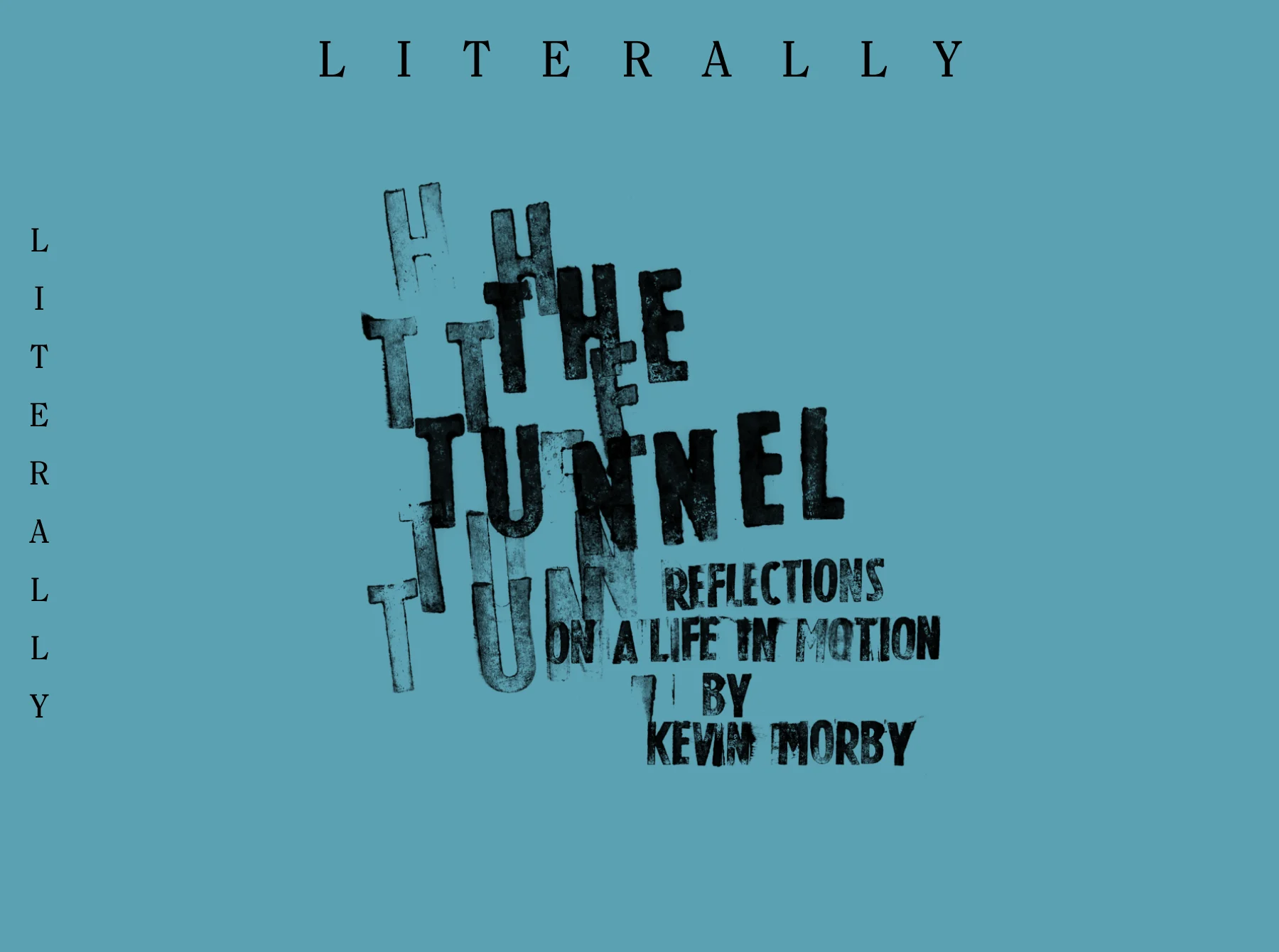

Dusk settles, pushing the sparkle of the day deep into the cracks in the pavement. This is Ivor Street, Camden, where, against the bloom of cherry blossoms and magnolia, the day sinks toward sleep. Tara watches from a sash window three stories above, holding two pieces of porcelain in her hands, pressing them together, a vein of gold between them.
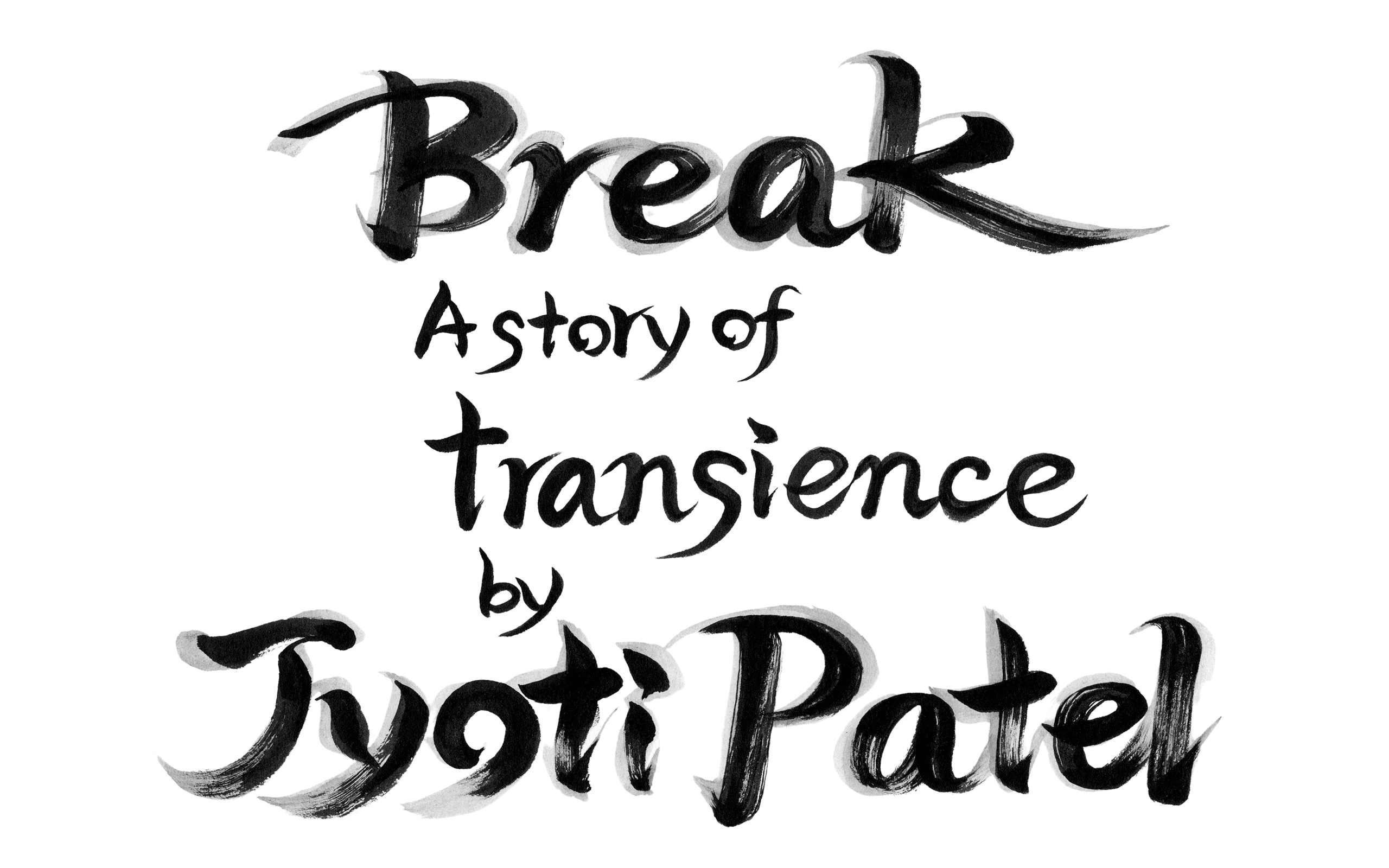
It’s barely been an hour since she returned from a day of back-to-back cardiac surgery. The scent of the hospital still lingers around her as she watches the flowers swaying gently against the colorless ground below. Soon, she thinks, the branches will grow leaves and the flowers will drop, leaving a carpet of soft pink and white petals across the earth. There is a feeling of trespassing about this – watching the bloom from above, in the way that’s reserved only for birds. Both trees are still young, yet their branches meet, overlapping slightly, as if they are greeting one another. This is the first spring that both have flowered in unison.
Her mind is still with the dancing flowers when the pieces of the plate slip in her hands, the harsh sound of porcelain on porcelain cutting through her. She was pushing them together with too much force. She turns from the window and takes a seat at her desk, carefully placing the pieces flush against one another, so one finds its home in the jagged edge of the other. A mixture of epoxy glue and gold paint sits between them. Her clock tells her she has three more minutes left. Three more minutes of hoping that they will heal and come together again.
Shards of the broken plate are scattered across her desk, covering part of a letter. She reads the words visible between the porcelain. They are instructions from Akina, her oldest friend: This is Kintsugi. I hope you remember. The word itself is two – golden joinery – sealed together and presented as one.

Tara wants to run her fingers over the words, feeling the indents they have left on the back of the page. Akina always pressed too hard when writing, even when they were children. Instead, Tara continues to hold the pieces together, thinking of how they once came together to form a white plate that could fit in her palm, pink roses dressing the edge like a wreath, tiny stars dotted between them. Now, the plate is cut into weapons of varying sizes – their sharp edges glinting at her. She smashed it herself, her heart trapped by grief, when she got the news.
Decades ago, the plate had rested on a bathroom windowsill in Streatham, placed there for the sole purpose of holding a set of earrings and a necklace for 15 minutes each evening whilst Tara’s mother bathed. In Sanskrit, Tara means star, her mother would tell her when she was a small child, when they would bathe together, placing her finger on one of the stars circling the plate. You’re my little light.
Some nights, when the sky was clear enough, they’d lie on the small patch of grass outside their flat after dinner, counting the stars overhead. When it was too warm to sleep, they’d play “I Spy” with the windows open, stopping to hold hands when a train shot past on the tracks opposite their home, making the floor under them quiver.
On other days, days when her mother didn’t smile as much, they’d stay in the bath until the warmth rose from the water, until the last train passed and the world outside fell into silence. Tara remembers the tips of her fingers growing wrinkly, goosebumps dotting her arms. I’m cold, now, she’d say. Her mother would wrap her in an old dressing gown, dark blue, fluffy, far too big for her. It smelled of the things her mother carried on her skin throughout the day: rose perfume, warmth, wine. The bottle her mother sipped from would trail from her hand as they moved to the kitchen for dinner, then to the mattress they shared for sleep.
Tara thinks now of those moments with her mother, before the breaks that followed, before the chasm that had slowly grown between them. It came when Tara was eight years old, when she confronted the man who’d come back into their lives, the one she was told to call father. She asked why her mother was fading away before her eyes, only to learn how she had come into the world, through an act of violence, of theft. He had told her that evening, red wine staining his lips, making them look purple, as though he were running out of air as he spoke: You are a curse, a crack, a break, a mark, as if it were a nursery rhyme. Across the room, her mother looked away, her eyes glazed over.
The words turned in circles around Tara’s mind as she grew up, quicker than other children. She wishes she had found a way to leave then, leaving air and space in her wake, air and space that may have allowed them to heal.

Now, she nudges a piece of porcelain away with her elbow to read Akina’s instructions: Once you’ve applied the epoxy glue and paint mixture, hold the broken pieces together for no less than five minutes. Don’t take shortcuts and try sticking loads of pieces back together at once. They’ll just break. One at a time. Be patient. And I know what you’re like – don’t wander off to stare out of the window, or whatever. Pay attention to the healing that’s happening between your hands.
She smiles slightly at this, recognizing the same tone Akina uses with her students. This is the version of Akina she loves most: the professor of fine art, the sculptor who always turns to her hands for comfort. As a child, Tara tried to keep up with Akina, painting, drawing, creating, but she didn’t have the same affection for it. Instead, she found a home in the certainty of science, data, fact. Despite this, there were instances over the years when she would come across an abstract painting, a rustic wooden table, a pavement made soft by decaying petals, and she would pause. She’d recognize, in those moments, a glimmer of what Akina always spoke about – the beauty in imperfection.
She was 14 the first time she saw a piece of pottery repaired using Kintsugi. She remembers staring at a trio of small brown bowls on Akina’s kitchen table one evening, her eyes following the gold veins that seemed to meander along their own paths, precise in their messiness, like the lines drawn by man to divide the earth. They wobbled, as they do on maps, as though they were pulled along by a trembling hand, an uncertain one, one that questions its own power as it works. Akina’s grandmother had noticed her staring and lifted one of the bowls from the table, placing it into Tara’s curious hands. She murmured: This is Kintsugi, Tara-chan. It takes years of training. Months of healing. The lacquer is made from sap that’s taken from the heart of an urushi tree. An end for a new beginning.
Tara had stared at the bowl, thinking how perfect it was, in awe of how something so delicate could be more beautiful for its breaks. It was gorgeous, organic, without formula. She wondered what else could be healed, brought back to life, with gold.
It’s yours now, Akina’s grandmother said. Keep it safe.

When Tara returned home and pulled the bowl from her school bag, her mother had nodded, her eyes vacant. Yes, it’s beautiful, darling.
Tara remembers searching for her mother in the woman before her and being greeted by an emptiness so heavy it winded her. The scent of rose that followed her mother all these years was gone, only warmth and wine remained. Their home too, was disintegrating. Water damage pressed into their ceiling from a burst pipe. Mold speckled the windowsills. Tara’s bedroom door had been kicked in just a few weeks prior, removed, and then laid to rest on the patch of grass outside their flat. She turned to him then, her father, something painful growing in her chest, something that felt like a crack: What are you doing to her to make her fade away like this?
Across the room, he had shrugged her question away, pointed to the bowl, and said: I don’t get it.
Don’t you? Tara asked, pointing to his carefully ripped jeans.
She does not know exactly where that bowl ended up over the years, which crack it slipped between as she moved from home to home, but the thought of it has tugged at her in the weeks following her mother’s death, like the refrain of a song, whispers of Akina telling her about the philosophy of wabi-sabi, of beauty in imperfection, in transience, growing louder as the days whipped past. There is power in the ephemeral, in pain, in brokenness.
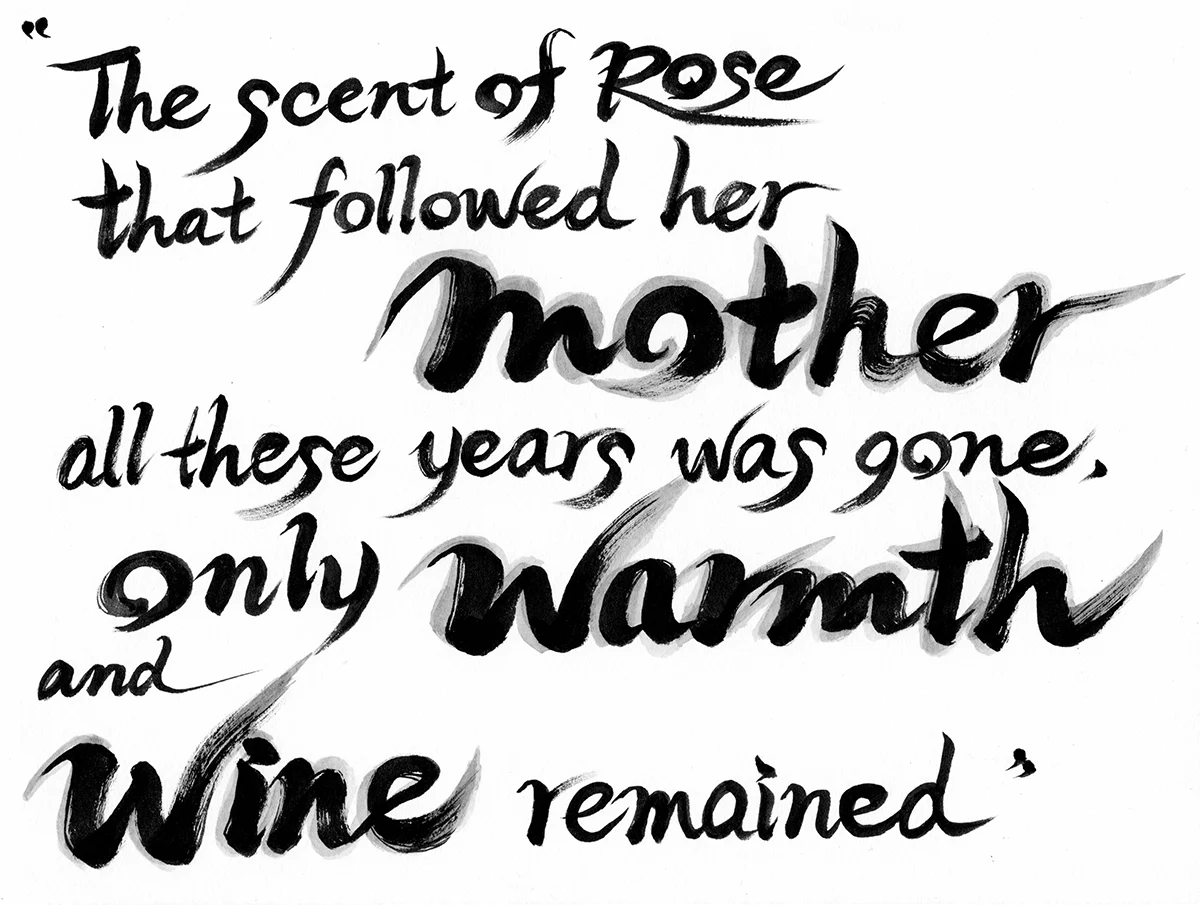
Tara has not entered the hospital for anything other than work in decades. Not as a patient, nor as a visitor. Now, she wonders what it might have felt like to wait helplessly beside her mother for the end, surrounded by ticking machines and beds on wheels and the scent of death. But the thought ricochets and pierces her, bringing with it the painful reality of how she actually discovered her mother’s passing. It was through the slap of her letterbox. Through calm surgeon’s fingers that have been trained to slice into skin, into cartilage, into muscle, struggling and fumbling against an envelope, one that housed a simple invitation. An invitation to a funeral. There were no details about how she died – just a time, a date, and the address of a crematorium. Tara searched the white space between the words for an answer, one that came to her weeks later, through an old neighbor: heart failure.
The night the invitation slipped through her letterbox, she had sat on the staircase for hours, unable to move. A bowl of wilting salad she hadn’t managed to eat rested by her feet, Akina’s arm around her, holding her together.
I always thought, deep down, on some level, we’d be able to fix it. I shouldn’t have waited.
No, listen to me. You did everything you could. You’re her daughter. You’re the one who needed to be looked after.
She’d succumbed to tears then, wishing the words were true, feeling Akina’s warm hand moving in circles in the space between her shoulder blades. Akina was the only person who knew the full story, but even then, there was a missing piece, a hidden chip. Akina didn’t know the very ending, didn’t know how Tara’s “father” had tried to contact her in the weeks before the death, didn’t know how Tara had ignored his calls, deleted his voicemails without listening to them.
I always planned to mend things, she told Akina. I just wasn’t ready yet. And now she’s gone, I won’t be able to fix it. What we were will always be broken.
Akina hadn’t responded with words, but a few days later, when Tara got back from work, a package was waiting on her doorstep. A package containing epoxy resin, gold paint, a thin paintbrush and some tiny wooden sticks. A makeshift version of the great art of Kintsugi, Akina’s cursive hand on the brown paper reading: In my mind, there is no such thing as broken. There is only becoming.
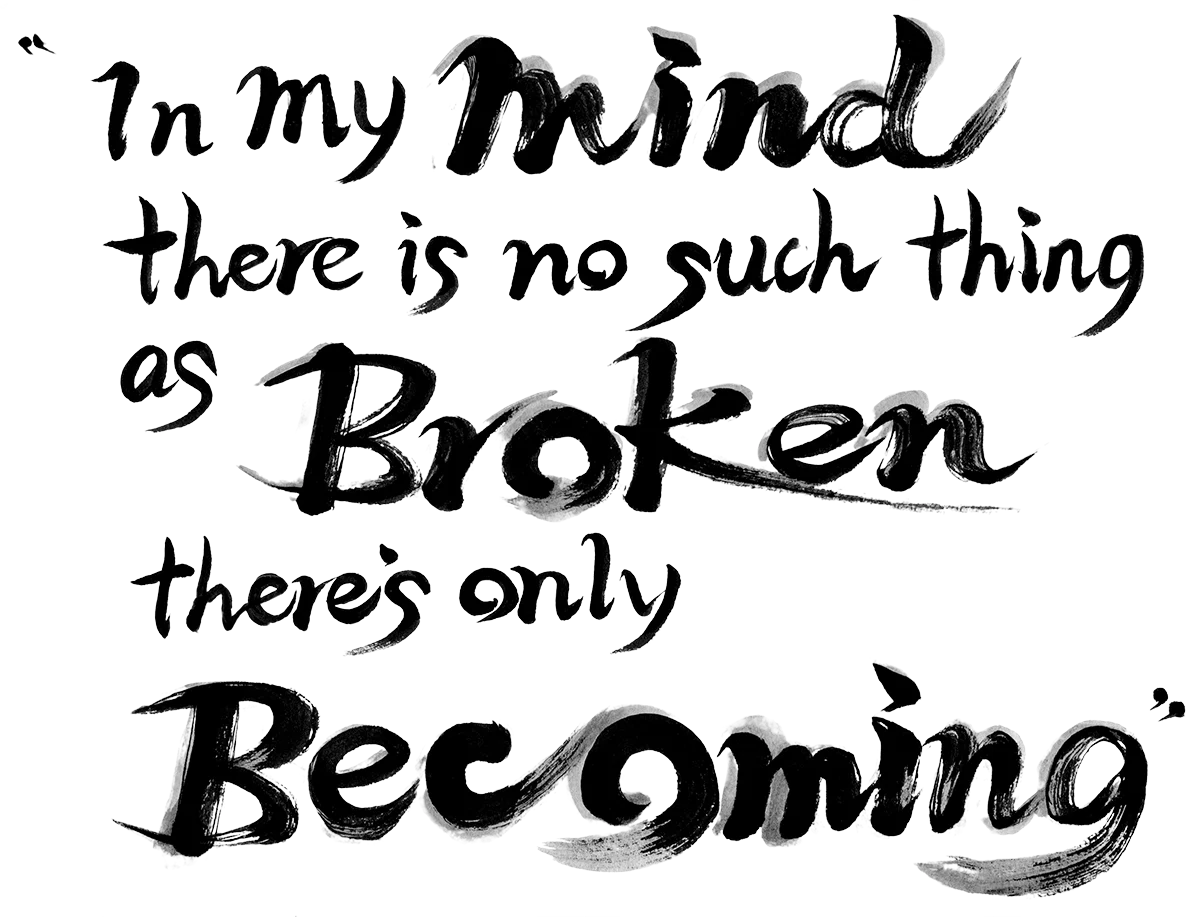
Night creeps one careful step closer. Tara works, repairing the plate one piece at a time, listening to the sound of Camden folding into darkness. A couple pass her open window, ambling towards the high street, deciding which restaurant they should go to for dinner. The sound of dunnocks singing in her neighbor’s hedge succumbs to the grumble of a plane above, then a scooter below. When she presses the final piece against the rest of the plate – a tiny triangle that slots between two edges – she stops to take in the veins of gold, bringing the plate to life once more.
Akina’s final instructions read: Use the paintbrush to apply another layer of gold over the breaks, highlighting them, celebrating how they make the piece unique.
Tara picks up the brush, thinking, as she works, of how the gold lines seem to have shifted something in the aesthetic of the plate. They bring out the glow of the stars, making them look brighter, their shine no longer usurped by the colorful, winding roses. It’s then that those moments come back to her again slowly, quietly – those moments in the bathtub, the nights they stared up at the stars, the good that was, before the ache danced through her mother’s veins and took her away. She searches, for the first time, for space to hold those memories just as they are. To hold the messy pieces of her mother despite the breaks that grew deeper over the years, pulling everything around them into darkness.
When the lines are glistening and the plate is fixed, Tara places the paintbrush on the table and notices a mark on its slim body. At first, she admires it, thinking it is a flower embossed onto the handle. It takes her a few seconds to recognize that it is blood. The same mark appears on the edge of the plate, blood mixed with gold, pain with beauty. She finds the source of the liquid – a small cut on her ring finger. It’s neat, precise. It happened by the window, she realizes, looking up. It happened when those first two pieces slipped in her hands as she stared down at the blossoms. The plate is fixed, she thinks, it’s whole once more, but making it whole again has left, on her skin, a fresh break. One that will heal, that will fade – as everything does – with time.
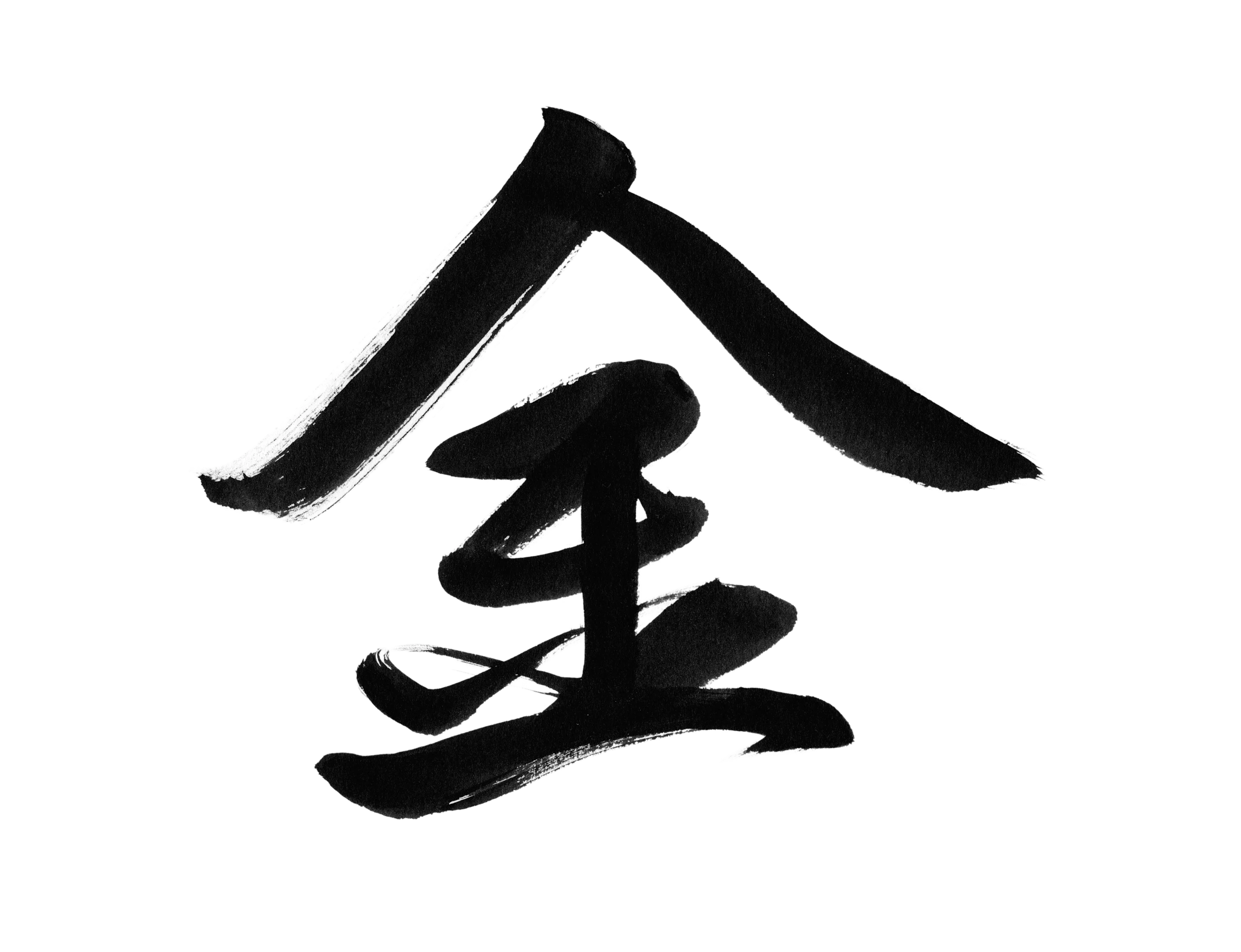
Jyoti Patel lives in London and is the winner of the #Merky Books New Writers’ Prize 2021, a competition launched by Stormzy and Penguin Random House UK to discover unpublished, underrepresented writers. Jyoti is also a graduate of the University of East Anglia’s Creative Writing Prose MA and her debut novel, "The Things That We Lost", will be published by #Merky Books in January 2023.
If you liked this piece, Jyoti recommends reading the following novels which are both brilliant and beautiful in their exploration of the complexities of love, loss, and addiction: Shuggie Bain by Douglas Stuart and Transcendent Kingdom by Yaa Gyasi. She also recommends looking into the Japanese philosophy of Wabi-Sabi. Jun'ichirō Tanizaki's In Praise of Shadows is a good place to start.
Literally is WePresent’s slowly expanding library of written commissions by some of the best writers in the world.
The hand-drawn typography on this page was created by Rie Takeda.


